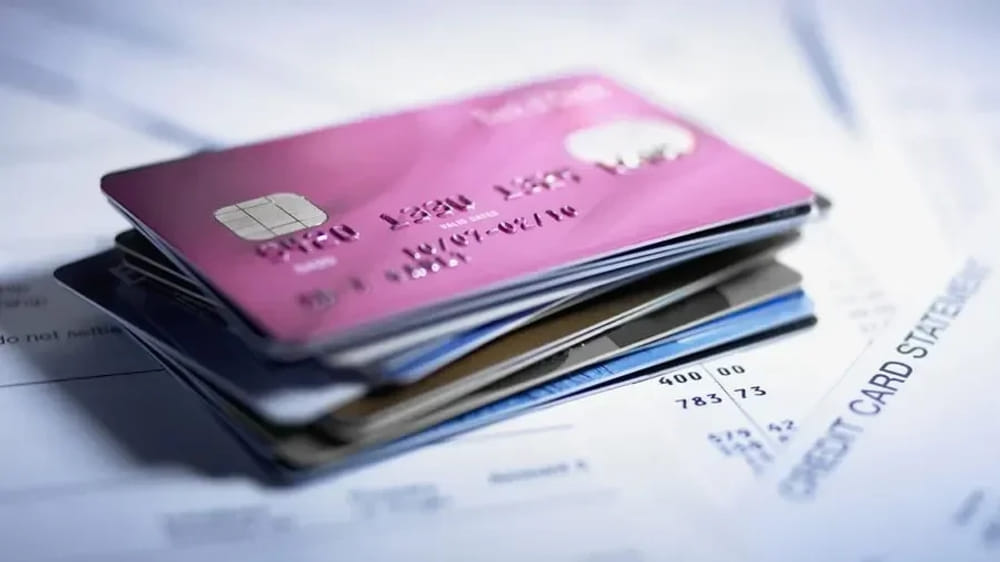Publicado em
- 4 min read
Credit Card Issuer Reporting: When Does a Late Payment Affect Your Credit Score?

Maintaining a good credit score is essential in personal finance. Your payment history plays a pivotal role in determining credit scores, making it crucial to pay bills on time. But what happens if you occasionally miss the due date on your credit card payment? Will your credit score plummet if you’re just a few days late?
In this article, we delve into the timing of credit card issuers reporting late payments to credit bureaus, shedding light on what happens when you’re late on your payments.
The Importance of On-Time Payments
Your credit score relies heavily on your payment history, which accounts for 35% of your FICO credit score. Timely payments are vital for a healthy credit profile. However, if you’re occasionally late with credit card payments, you might wonder about the consequences and how it affects your credit report.
Understanding Reporting Timelines
Contrary to what you might think, credit card issuers don’t report you as late the moment you miss a payment. There is a specific timeline they must follow. Here’s how it works:
- Waiting Period: Credit card issuers, like all lenders, adhere to a policy that requires them to wait for a full 30 days after the due date before reporting late payments to credit bureaus. This waiting period is a standard practice in the credit reporting industry.
- No Reporting for 1-29 Days: Interestingly, there is no mechanism for reporting someone as late by one to 29 days. If you’re just a few days late with your payment, it won’t be reflected on your credit report.
- The CARD Act of 2009: The CARD Act of 2009 mandates that credit card issuers provide a 21-day grace period plus the 30-day waiting period before reporting a late payment. This means that if a late payment appears on your credit report, you didn’t make a payment for a full 51 days after receiving your statement.
- Voluntary Reporting: Credit card companies are not obligated to report late payments or any other account details to credit bureaus; it’s a voluntary process. However, if they choose to share information, they must follow the rules outlined in the Fair Credit Reporting Act (FCRA) and credit reporting standards.
- Escalating Delinquency: After the initial 30-day waiting period, credit card issuers can report you as being 30, 60, 90, 120, 150, and even 180+ days past due if you continue to miss payments.
Why Timely Payments Are Crucial
While you might get away with being a few days late on your credit card payment without it affecting your credit score, there are compelling reasons to avoid this practice:
- Late Fees: Credit card issuers can impose late fees on your account as soon as you miss your payment by even a single day. These fees can add up and become costly.
- Adverse Account Changes: Consistently paying your credit card bills late can lead to unfavorable consequences such as a reduction in your credit limit or the closure of your account, particularly if you pose a higher risk as a borrower.
- Room for Error: Delaying payments can be risky. If you plan to delay payment due to financial constraints, unforeseen issues may arise, causing you to go beyond the 30-day mark, resulting in negative marks on your credit report and potential drops in your credit scores.
How Late Payments Impact Credit Scores
Late payments, whether by a few days or more, can have a negative impact on your credit scores. The severity of the impact depends on various factors:
- Recency: Recent late payments are more damaging than older ones from a credit scoring perspective.
- Frequency: Consistent late payments can be more detrimental than an isolated late payment.
- Current Status: Accounts that are currently past due can cause more significant credit score damage than accounts that were late in the past but have since been brought current.
- Late Payment Severity: A 90-day late payment is typically more harmful to your credit score than a 30-day late payment.
While the exact credit score impact varies, it’s reported that a single late payment can lower your score by up to 100 points.
Removing Late Payments
Accurate late payments cannot be forced to be removed from your credit reports, as they can legally remain on your report for up to seven years under the Fair Credit Reporting Act (FCRA). However, you can dispute incorrect or outdated late payments, as the FCRA allows you to challenge inaccurate information.
Additionally, you can request a goodwill adjustment from your credit card company to have a late payment removed from your credit reports, but this is not guaranteed.
Conclusion
Understanding the timing of when credit card issuers report late payments to credit bureaus is crucial for maintaining a healthy credit profile. While you may have a short grace period for late payments, it’s in your best interest to pay your bills on time to avoid late fees, adverse account changes, and potential credit score damage. Always prioritize timely payments to ensure a positive credit history and score.